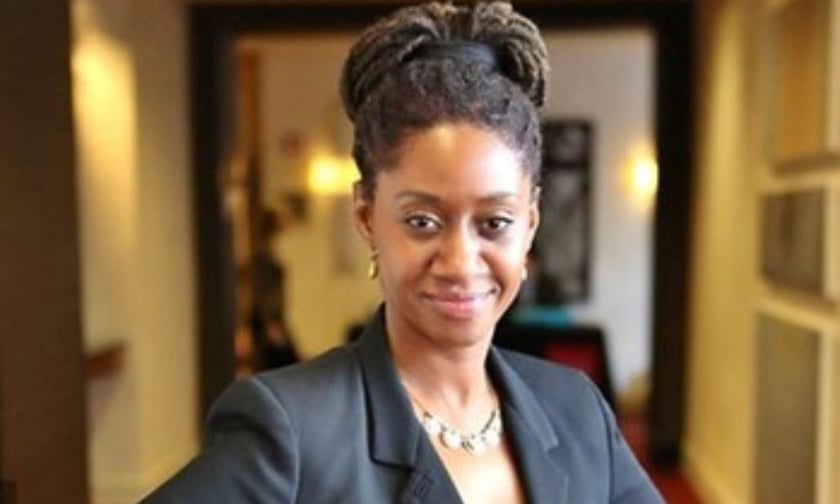

There’s a lack of education
While many organizations have maternity leave policies in place, for instance, their strategies neglect to consider the post-partum transition period for mothers.
As a result, women are typically expected to perform their roles at the same optimal level as they did before they left to give birth.
“
A certified health education specialist and wellness coach, Thorpe has made it her mission to
Stronger Tomorrow is a comprehensive workplace wellness consultancy that aims to transform wellness using DEI frameworks.
Thorpe is bringing her more than 22 years of experience in health care and management consulting to the Women in Insurance New York Summit this September, sharing her best practices in DEI and women’s health in a session titled “Breaking taboos – Supporting women’s health at every career stage.”
“People often think of mental and physical health, but there are eight dimensions of wellness that I work through, and I intersect them with diversity, equity and inclusion,” she told Insurance Business.
The other dimensions of wellness, according to the CEO, are social, environmental, financial, occupational, intellectual, and spiritual.
All eight are important to achieving holistic health within an organization, and a
“A strategic wellness plan means taking a very close look at what you currently have in your organization. What are some of the needs [of employees] and how do we tie key metrics to deliverables that will impact the organization's bottom line?” she said.
“If you have a healthy environment that embraces all its employees, it will impact
Before starting Stronger Tomorrow LLC, Thorpe worked extensively in patient navigation, helping patients in need
Part of the work involves educating and empowering individuals to advocate for themselves or serve as advocates for patients who are unable to do so.
Through her experiences, she became intimately familiar with how women of color are disproportionately impacted by inequalities.
“Statistically, black and brown women were more disproportionately impacted in caregiving roles than other groups during the COVID-19 pandemic,” Thorpe said.
Women of color tend to take on more caregiving work while juggling full-time jobs, a burden that
Breaking taboos is a critical step to more education and understanding about women’s health. The first step is for leaders to recognize who their employees are beyond the workplace.
Employees who are also parents and caregivers need to be acknowledged for the other roles they play, according to Thorpe.
“I've often told people who've worked for me, ‘You are a full person,’” she said.
Beyond pregnancy, menstruation, miscarriage, and menopause are other life transitions that employees need to address, so that women don’t feel the need to hide their symptoms.
“If you're a woman who is blessed to get to a certain age, you are going to go through menopause,” Thorpe said. “How can organizations accommodate that and not treat it as something shameful or embarrassing?
“One woman I spoke to said that she once broke into sweats in the middle of a meeting and didn't know what to do. These are normal cycles we go through, and I think what's happened is that we've shamed women and put them in a box because it’s comfortable
Men have an equal role to play in creating an open culture about health that makes women feel safe and supported, Thorpe added.
“We need to work alongside those allies who recognize the value that women bring to the world, that we are viable components to the workplace and the home,” she said.
But Thorpe strongly cautioned leaders against putting the responsibility of creating open and inclusive work cultures squarely on the shoulders of their minority employees.
“We're often asked to lead the conversation and bring everybody along with us. Those who are in positions of power or influence sit on the sidelines, while we end up doing the heavy lifting,” she said.
“But women in insurance need to go out and do insurance work. If they're working for an organization, that organization has a responsibility to them to address their needs because it's all part of the human resources package.”
Register for the Women in Insurance New York Summit and join the conversation on breaking taboos in the workplace. The annual conference is back on September 21, 2023 – a day of celebrating the achievements of women in insurance.
